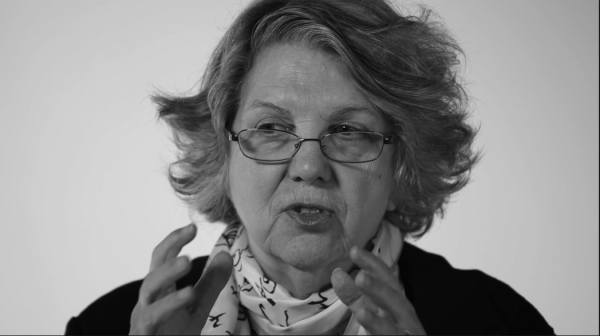An ode to Marsha Linehan

“So many people have begged me to come forward, and I just thought — well, I have to do this. I owe it to them.”
These were the words American psychologist Marsha Linehan, who pioneered Dialectical Behavioural Therapy (DBT), said before she shared that she too, like so many she had helped, had lived with Borderline Personality Disorder (BPD).
“I honestly didn’t realise at the time that I was dealing with myself,” Dr Linehan said.
“But I suppose it’s true that I developed a therapy that provides the things I needed for so many years and never got.”
Making a difference
After being hospitalised for 26 months at age 17, Dr Linehan devoted her career to improving the lives of, and reducing discrimination towards, people living with severe mental distress.
Once she had earned her doctorate in psychology, got hands-on experience at a suicide crisis centre and learned behaviour therapy, she called up all the hospitals and said:
"'Give me your worst.' They were only too happy to send them," she recalls.
Her life’s work, Dialectical Behavioural Therapy, uses cognitive behavioural therapy, Zen techniques and radical acceptance to teach people with severe mental distress how to tolerate the stresses of the moment, accept that imperfect lives are worth living, and gain the skills to cope with raging emotions.
It also reduces discrimination against BPD diagnoses by affirming that patients’ thoughts are valid given what they are experiencing.
Effects on the world
DBT has had a resounding effect worldwide. It has been used to treat mood disorders, substance abuse disorders and many other forms of mental distress.
Time magazine named Dr Linehan as one of the most influential scientists of the 20th Century.
Retiring this June after 43 years’ mahi, Dr Linehan has been pivotal in reducing mental distress discrimination and improving the lives of many New Zealanders.
Anecdotes from New Zealanders
“Going through an adolescent DBT programme moved our family from living in fear to living well together with hope for the future.
“Marsha’s combination of underpinning principles, learning skills and the support to implement them, anti-discrimination messaging and just plain compassion made DBT the one thing that has made a difference.
“Marsha herself is an inspiration and shows that there is indeed hope for not only
recovery but for a meaningful future.”
Lisa, family member of
someone who lives with BPD, Auckland
“DBT creates a foundation in which a life worth living can be cultivated. I have lived with acute suicidal ideation, severe emotional dysregulation and self-injurious behaviours for the better part of a lifetime.
“Upon completion of the Balance Programme (the DBT equivalent programme held in Auckland) I have a will to fully participate in my life, a greater tolerance for difficult emotions and hope for the future, all of which I never thought I would never attain.
“The core principle that a patient cannot fail at therapy, and that we do the best
that we can with the skills that we have provides consumers with the dignity we
deserve when seeking support and treatment.”
Martin*,
Auckland
“DBT was a game-changer. For the first time, we had an evidence-based treatment that
was designed to help the clients we were already seeing, and was most-often
effective at helping them towards their recovery goals. DBT helped us to feel more
satisfied in our work and reduced our burnout.”
Mike, mental
health therapist, Auckland
*Names have been changed
Photo credit: Borderliner Notes
Interested in reducing mental distress discrimination in the media? Join our Media Watch Facebook page here.
https://www.nytimes.com/2011/06/23/health/23lives.html
https://www.forbes.com/sites/robertlangreth/2010/09/01/the-woman-who-stops-patients-from-killing-themselves/#6ee219b84cc9
https://www.psychologytoday.com/nz/blog/the-skeptical-sleuth/201107/marsha-linehan-reveals-her-borderline-personality-disorder-must-our
https://tbcforcbt.com/marsha-linehan-is-featured-in-time-magazine-special-edition-of-great-scientists/
